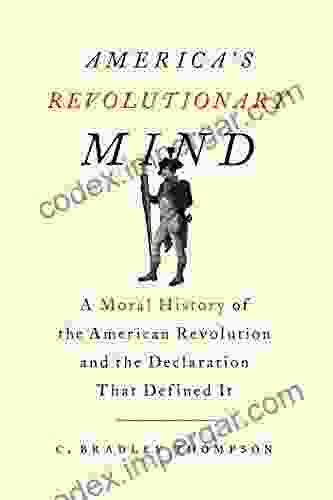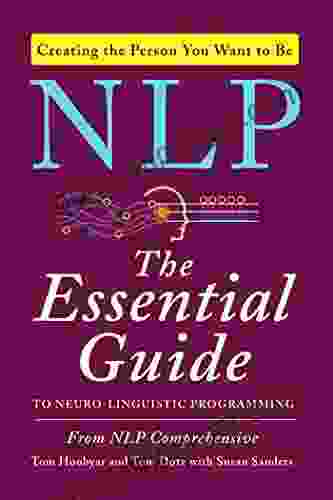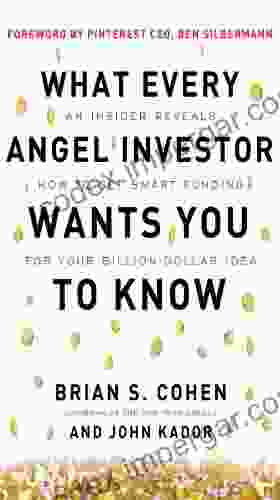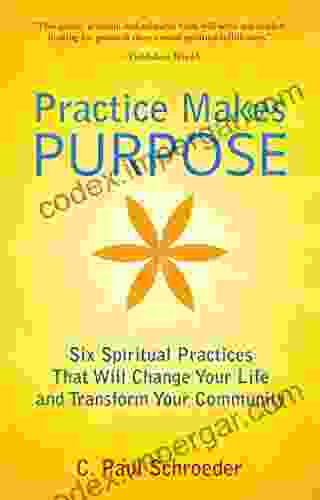Unveiling the Moral History of the American Revolution

The American Revolution was more than a mere conflict for independence. It was a profound clash of moral principles, a struggle between a government that transgressed the boundaries of justice and a people determined to reclaim their unalienable rights. 4.8 out of 5 The colonists, deeply rooted in the Enlightenment's ideals of liberty and equality, believed that all individuals were endowed with certain natural rights, including the right to life, liberty, and the pursuit of happiness. However, the British government, driven by mercantile interests and imperial ambitions, imposed oppressive laws and taxes that trampled upon these fundamental principles. In the face of escalating tensions and intolerable oppression, the Continental Congress drafted the Declaration of Independence, a document that would become the moral compass of the American Revolution. Penned by Thomas Jefferson, it eloquently declared the fundamental principles upon which the new nation would be founded. The Declaration asserted the self-evident truths of human equality and the right of all individuals to pursue their own happiness. It established the government's responsibility to secure these rights and stated that when a government failed to fulfill this duty, the people had the right to alter or abolish it. The outbreak of war in 1775 tested the moral resolve of the American people. Faced with the might of the British Empire, they fought not only for their physical freedom but also for the ideals they held dear. The war was a crucible that forged the character of the new nation. The Continental Army, despite its limited resources, embodied the spirit of sacrifice and unwavering determination. Leaders such as George Washington became beacons of moral leadership, inspiring their troops with a vision of a just and equitable society. The American Revolution and its moral foundations continue to shape the United States today. The principles enshrined in the Declaration of Independence have inspired countless generations of Americans to fight for justice, equality, and freedom. The moral history of the Revolution reminds us of the importance of upholding these ideals in the face of adversity. It teaches us that true freedom is not merely the absence of oppression but a society built on the principles of liberty, justice, and the inherent dignity of all individuals. The Moral History of the American Revolution and the Declaration that Defined It is a captivating account of the moral principles that ignited a nation's fight for independence and continue to guide it today. By delving into this rich history, we gain a deeper understanding of the values that have shaped our nation and the moral responsibility we bear to uphold them. As we navigate the challenges and opportunities of the 21st century, let us draw inspiration from the moral history of the American Revolution and strive to create a society that truly embodies its ideals.The Seeds of Revolution: A Clash of Ideals
Language : English File size : 1186 KB Text-to-Speech : Enabled Screen Reader : Supported Enhanced typesetting : Enabled X-Ray : Enabled Word Wise : Enabled Print length : 450 pages 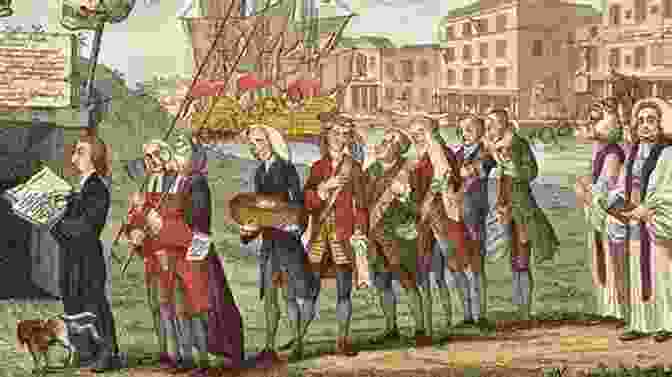
The Declaration of Independence: A Moral Manifesto
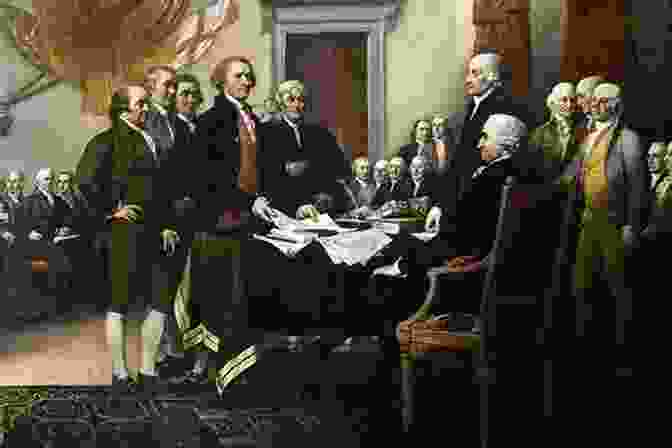
The War for Independence: A Test of Moral Courage

The Legacy of the Moral History
: A Timeless Call to Moral Responsibility
4.8 out of 5
| Language | : | English |
| File size | : | 1186 KB |
| Text-to-Speech | : | Enabled |
| Screen Reader | : | Supported |
| Enhanced typesetting | : | Enabled |
| X-Ray | : | Enabled |
| Word Wise | : | Enabled |
| Print length | : | 450 pages |
Do you want to contribute by writing guest posts on this blog?
Please contact us and send us a resume of previous articles that you have written.
 Book
Book Novel
Novel Page
Page Chapter
Chapter Text
Text Story
Story Genre
Genre Reader
Reader Library
Library Paperback
Paperback E-book
E-book Magazine
Magazine Newspaper
Newspaper Paragraph
Paragraph Sentence
Sentence Bookmark
Bookmark Shelf
Shelf Glossary
Glossary Bibliography
Bibliography Foreword
Foreword Preface
Preface Synopsis
Synopsis Annotation
Annotation Footnote
Footnote Manuscript
Manuscript Scroll
Scroll Codex
Codex Tome
Tome Bestseller
Bestseller Classics
Classics Library card
Library card Narrative
Narrative Biography
Biography Autobiography
Autobiography Memoir
Memoir Reference
Reference Encyclopedia
Encyclopedia Bret Werner
Bret Werner Christy Piper
Christy Piper David Eaton
David Eaton C J English
C J English Brett Velicovich
Brett Velicovich Dr Robert C Worstell
Dr Robert C Worstell Noah Hawley
Noah Hawley Terri Deboer
Terri Deboer Bruce Hayes
Bruce Hayes Kieran Setiya
Kieran Setiya Jonathan D Sarna
Jonathan D Sarna Stephen H Lekson
Stephen H Lekson Brian Cohen
Brian Cohen Brad Evans
Brad Evans Bob Tinker
Bob Tinker Clyde Edgerton
Clyde Edgerton Scott Schwab
Scott Schwab Dr Jenna Macciochi
Dr Jenna Macciochi John C Mcmanus
John C Mcmanus Bob Rich
Bob Rich
Light bulbAdvertise smarter! Our strategic ad space ensures maximum exposure. Reserve your spot today!

 Ralph TurnerDive into the Intimate World of Private Moment by Brad Evans: A Captivating...
Ralph TurnerDive into the Intimate World of Private Moment by Brad Evans: A Captivating... Bill GrantFollow ·2.8k
Bill GrantFollow ·2.8k Albert ReedFollow ·10.3k
Albert ReedFollow ·10.3k Ruben CoxFollow ·8.7k
Ruben CoxFollow ·8.7k Ralph EllisonFollow ·14.4k
Ralph EllisonFollow ·14.4k Jeffrey HayesFollow ·8.8k
Jeffrey HayesFollow ·8.8k Alan TurnerFollow ·7.9k
Alan TurnerFollow ·7.9k Kenzaburō ŌeFollow ·5.9k
Kenzaburō ŌeFollow ·5.9k Harry HayesFollow ·6.7k
Harry HayesFollow ·6.7k

 Gary Cox
Gary CoxUnlocking Meaning and Purpose in Life: An Exploration of...
In an increasingly...

 Eric Hayes
Eric HayesMemoirs of the Early Pioneer Settlers of Ohio Illustrated
A Window into the Lives of Courageous...
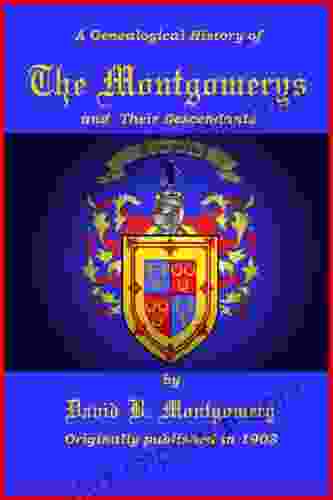
 J.R.R. Tolkien
J.R.R. TolkienThe Montgomerys and Their Descendants: A Saga of Courage,...
Prepare to be...

 Avery Simmons
Avery SimmonsThe Rifle Musket: The Dawn of Modern Infantry Warfare
: The rifle musket, a revolutionary...

 Jesse Bell
Jesse BellUnlock the Power of Excel with VBA and Macros: A...
Microsoft Excel is a powerful spreadsheet...
4.8 out of 5
| Language | : | English |
| File size | : | 1186 KB |
| Text-to-Speech | : | Enabled |
| Screen Reader | : | Supported |
| Enhanced typesetting | : | Enabled |
| X-Ray | : | Enabled |
| Word Wise | : | Enabled |
| Print length | : | 450 pages |


